In Becoming, Finding Belonging
In my biggest search for identity and meaning, my journey of becoming is teaching me the true meaning of belonging
If you are reading this — hello, and I’m so grateful to have you here, sharing your time and company with my words.
I realize I haven’t really introduced myself to you yet.
And it’s because since I’ve started sharing my writing here, since even before that, I have been so deep in becoming, in not-yet-knowing.
Today, as I write looking at the sky from my new home, where I’ve moved to after 13 years in London (you can read about this in my earlier post, Postcards from October), it felt like the right time to share my answers to 4 questions relating to identity and belonging that I’ve been asked (by others or myself) in different ways since leaving my place of birth to explore the meaning of home in other places of the world.
Who are you?
Until recently, my becoming of all of who I am, has involved a whole lot of un-becoming who I thought I needed to be.
This has looked like a whole lot of walking away from, without any clear idea of what I am walking towards.
At times, I found that I was trying to walk away so fast, that I ended up feeling even more lost, even more adrift.
2023 and 2022 taught me that I can’t find out who I am, or what my way home is, without remembering where I have come from.

Where are you (really) from?
Since I’ve spent over half my life living far away from the place I was born, and far away from places where I look like “the majority” of other people, I have spent as much time getting asked this question, and for more times than I can keep count of.
My answers have taken different forms and lengths, yet all have had one thing in common — they’ve always included the word “but” (with many more words following the “but” than preceding it).
— I’m from Singapore, but I haven’t lived there for 20 years.
— I’m from Singapore, but I have now lived away for longer than I’ve lived there.
— I’m from Singapore, but that’s not the only place I’m from.
— I’m from Singapore, but (insert complicated, somewhat apologetic, explanation of all the different places I’ve lived in around the world, while clarifying that none of them fully represented the past / present / future versions of me, and furthermore explain how where I’m from is not the place they may assume it is, in the fervent hope that they grasp the complexity and nuance of my lived experience and don’t default to stereotyping me — my worst nightmare — or stereotyping where I’m from — my second worst nightmare).
At the heart of it, I think, I was trying my hardest to say — I know it looks like I couldn’t belong here, but let me show you that I do, I really do.
The other thing all my answers had in common was the part I always left unsaid — “and so I’m not who you think I am, ok? I will be better than whoever you think I am.”
Until recently, I hadn’t realized how much invisible weight I had been picking up, and stacking on to my load — for each time that I said “but”, each time I left unsaid those silent hopes, each time I was apologetic for my presence as “the-one-who-required-additional-explanation”, each time that I made myself try harder to be just a little less on the outside and just a little more on the inside.
Until recently, I hadn’t realized that perhaps why I left those words unsaid was not because I couldn’t bring myself to say them to whoever asked me the question, but because those words were not actually meant for them, but for me.
I was saying those words to myself — the me that I rejected in order to be accepted, the me that I denied in order to belong, the me that wanted to prove to everyone that I was better than how I appeared to be, or was expected to be.
I’m not who you think I am, ok? I will be better than whoever you think I am.
〰️ 〰️ 〰️
That word, better.
It held the balancing scales I had carried around for most of my life, for whipping out periodically to precisely and critically assess and weigh my difference from the ideal, the desired, the aspired.
It carried within it the idea of linearity, of no looking back, of a one-way trajectory to goodness.
It pushed forward the idea of polarity, of mutual exclusiveness, of either / or. I was still this, therefore I was not yet that. I could not be this, if I wanted to be that.
It was a radical idea for me — realizing that I can be both, and. I can be both parts of this and I can be parts of that, together, all at once. Realizing that life moves as a cycle, in spiral form, like a seashell. Realizing that the end is also a beginning.
For me, what has felt like a full and truthful expression of my identity cannot be defined only by the negative — by who I don’t or no longer choose to be. It must also be filled in with the essence of who I do choose to be.
The negative definition provides the form, and the positive definition provides the substance.
On a side note, this concept of definition, form and substance was what crystallized for me when I read Outline by Rachel Cusk (the first book of a trilogy) last year, and contemplated the significance of the title she chose for the book. An autofiction novel I really enjoyed, which I think could resonate for anyone who’s feeling like their idea of who they are is in transition or in flux. I’ll be writing more about autofiction in a future post.
I can let go of, or walk away from, something I no longer want in my life, and still carry in me the imprint of its shape, colour, scent, feel and taste.
And it is that imprint that has given, and continues to give, me the ability to discern and determine what I do want in my life.
And it is me with that imprint, and not without it, that makes me who I am.
Who I am, is born from, and shaped by, the canvas of who I choose not to be.
Who I choose not to be, as my canvas for creating, forms part of my definition, assertion and expression of who I am being.
I am not just the words I say, I am also the words I have left unsaid.
Are you a person of your words?
Last year, in the Atlas Mountains of Morocco, I discovered I had a voice for all the words I had been leaving unsaid, all my life.
I discovered the reason I had left them all unsaid, for all this time.
It was because I had been afraid.
I had been afraid that they were too particular — not just in the sense of being specific, but also in the sense of being strange.
And strange was not good, strange was scandalous.
How scandalous, to be so revealing and so exposed.
How scandalous, to think that my particulars matter.
And so, what I feared was the scandal of the particular.1
I feared that saying those particular, strange, and scandalous words would result in me being perceived as equally particular, equally strange, equally scandalous, by those who I was determined would see me as one of them, as not particular, not strange, not scandalous.
While on a writing retreat in Morocco with Trust and Travel last year, I had these fears upended by the most refreshing gust of wind I had ever been blown into.
In a place of physical, emotional and creative homecoming created by Jade Moyano and Erin Rose Belair, a little collective of writing travellers / travelling writers who were drawn to the Atlas Mountains to write and to let ourselves be seen for who we were, learnt from Leslie Jamison (our guest teacher on the retreat) about the universality of the particular.
We learnt that particularity is, in fact, what makes a story universally matter and speak to people.
It is what makes the story a version that has never been heard before your telling of it.
The particular — each particular, each sensory, textural and emotional detail of the literal and metaphorical landscape — is what opens the doorway of connection for, and between, writer and reader.
This connection point is what helps a reader find their home in any story.
And in telling my story, I discovered that the door it opened for me, the writer, was the door that let in the light for me to see the beauty and preciousness in all the experiences that have made me who I am, even the difficult, even the painful.
The particular type of beauty that unfolds amidst the bittersweet of shadows, sighs and sadness.
The particular type of preciousness that is birthed from an overly bright darkness, of the sort we find pouring out from the midnight blue of unexplored inner landscapes and forgotten histories.
In telling my story, I discovered that telling it absolutely unapologetically, with all these connection points intact, is what illuminates that beauty and preciousness, to help me find my home in my own story.
The home that I’ve spent more than half a lifetime running around the world in search of.
Universality is the form. My particulars are the substance.
My becoming helps me find my belonging.
What is your story?
All of this to say that, I have changed how I introduce myself to others.
And I’ve learnt that, at the end of an introduction, it is more than okay to be crying-as-though-no-one-is-watching, rather than shiny-smiling.
Because, emerging through the mist of your tears, you discover others seeing you through their own, and you remember how it feels to belong.
In my introduction, this is how I now like to begin —
I am from a tiny island about 1 degree north of the equator that, on the world map, is practically invisible.
I am from all the places where, growing up and grown up, I got lost, and was not found, where I hid, and was not sought. Sometimes, I waited to be sought. Sometimes, I wished not to be found.
You can read what follows at Where I Am From (Hiding in Plain Sight) on Trust and Travel’s literary journal, Stories, where I am honoured to have my words find a home (this post was written as a companion piece to that, and together, they form the fuller story I’m sharing on becoming and belonging).
I hope you enjoy it and that, as is my hope for all the words I plant here, it provides a home for you in your reading of it.
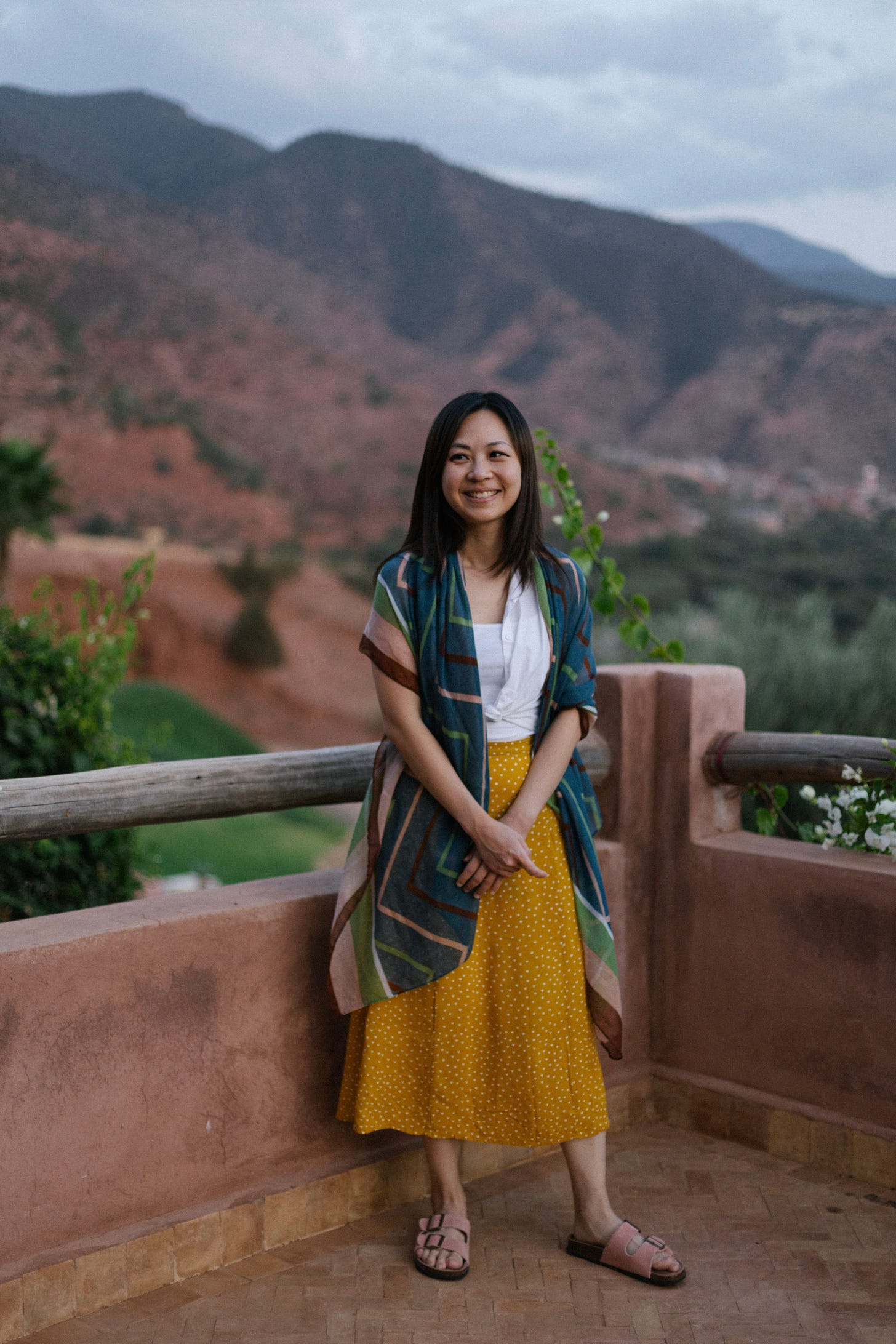
〰️ 〰️ 〰️ 〰️ 〰️ 〰️
Words I don’t wish to leave unsaid:
At the start of this new year, I write with a whole lot of love and gratitude —
〰️ for the discovery that every story finds its own way home — to those for whom the story does matter, to those for whom the story will provide a home, even if for just a moment
〰️ to Erin, Jade and Leslie for being lighthouses in this defining moment of my journey of becoming all of who I am
〰️ to Róża Kadi, a magician with light, for capturing through her camera the moment shown above, which I hold dear to me — the essence of me crossing a threshold into my becoming
〰️ to you, always, for giving my words a home in your reading
Although borrowing from its terminology, the reference to the scandal of the particular here is distinguished from the scandal of particularity (a concept from theology).


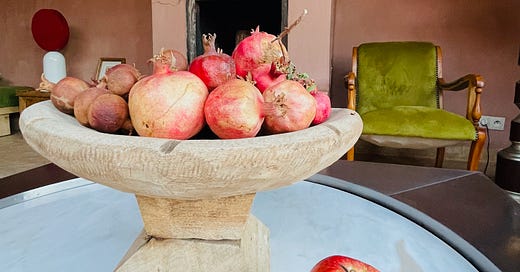


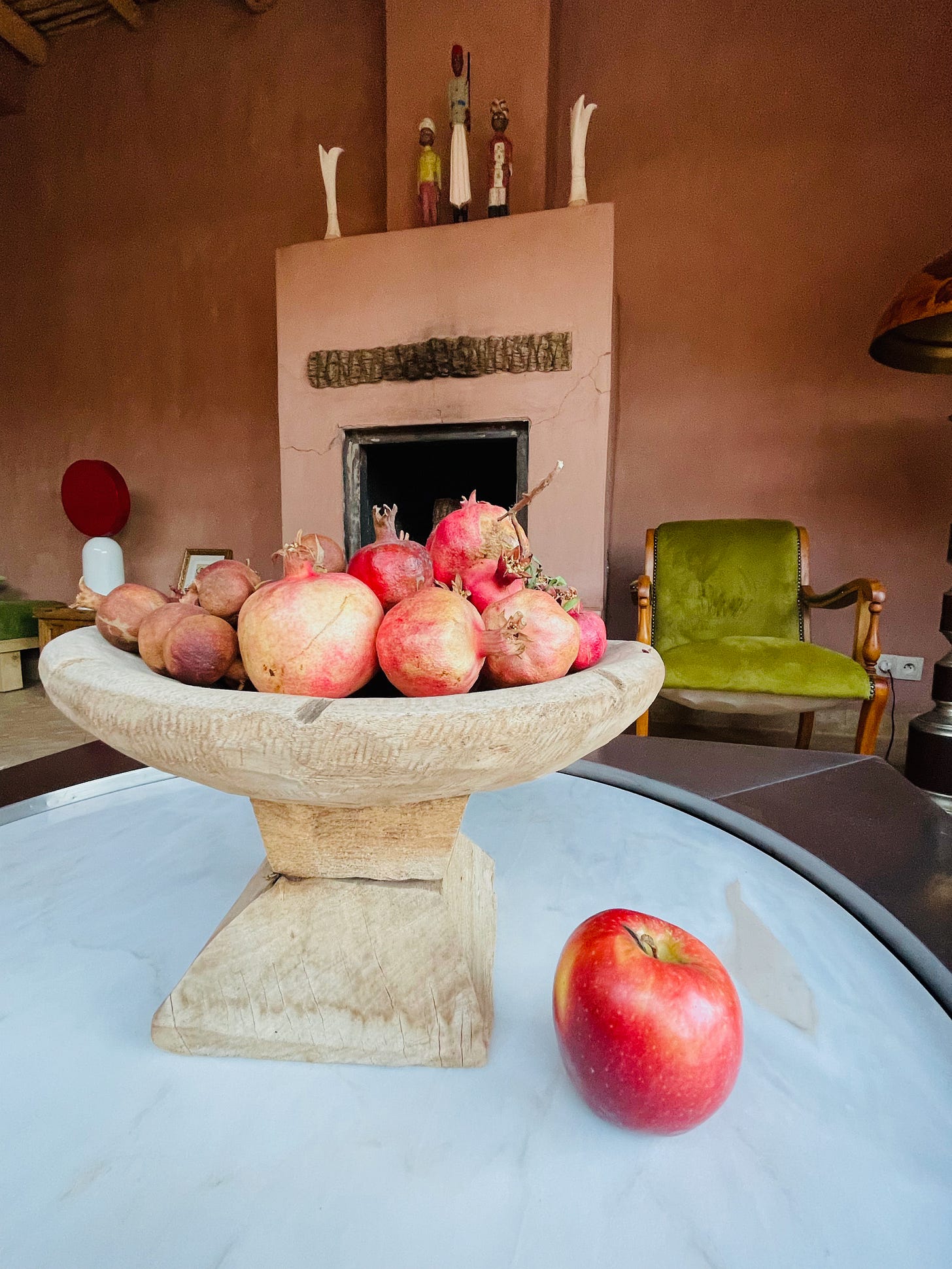
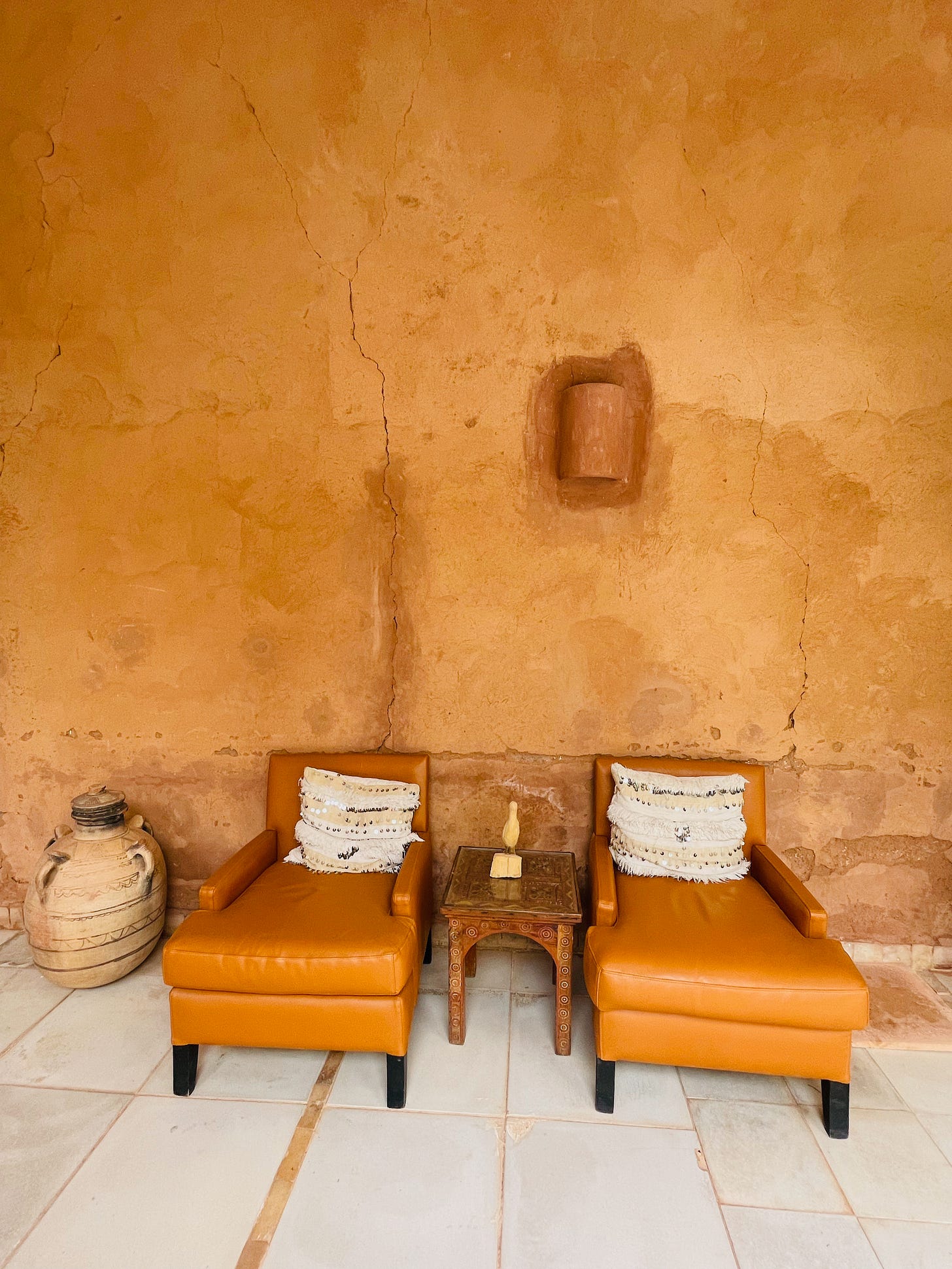
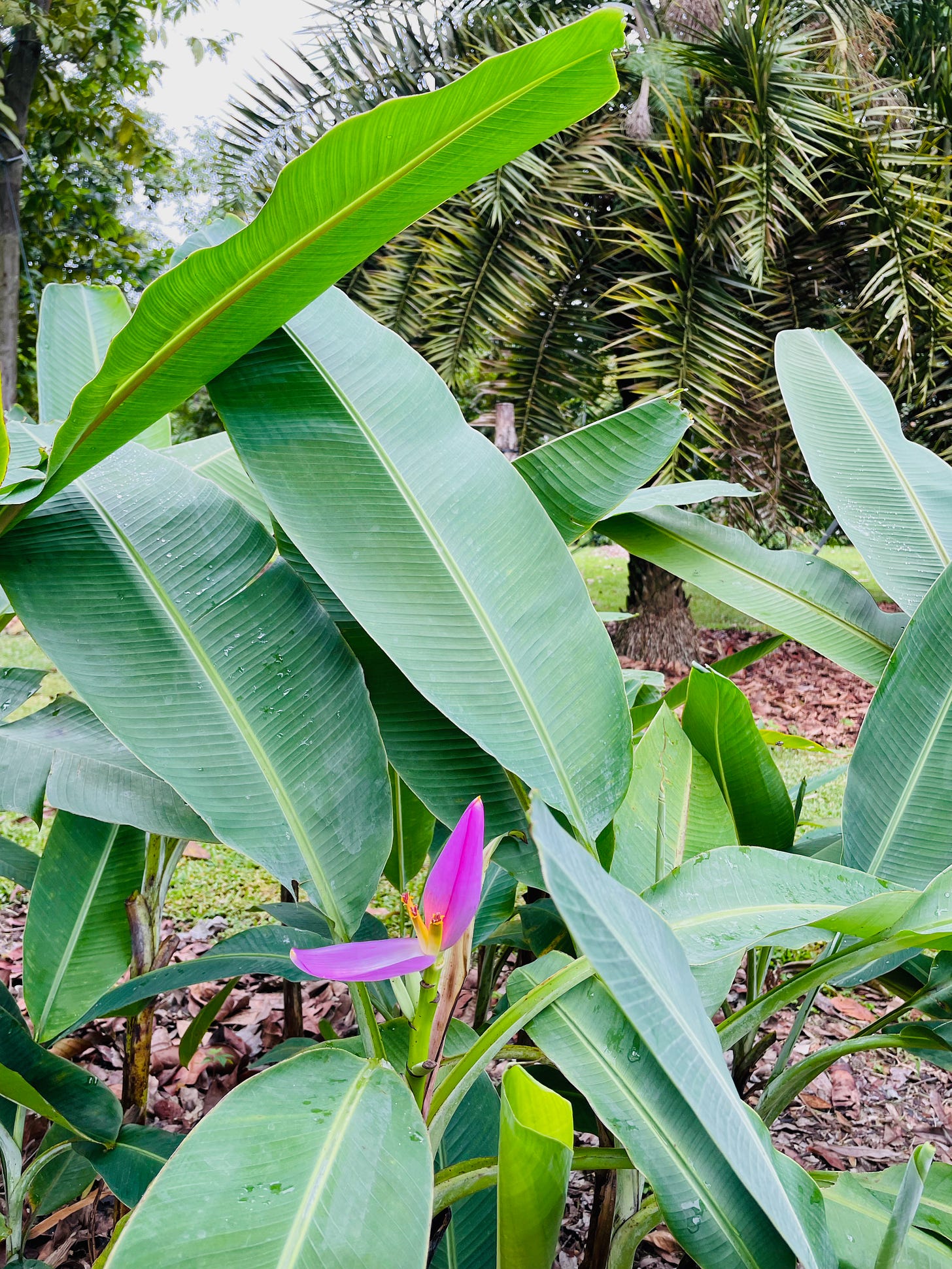
Hello Suyin,
This is a really great piece on the idea of belonging. The questions you asked in it are so simple yet have so many different answers, each with many layers.
I also liked how you underlined the relationship between the particular and universal. Sometimes, when self-doubt creeps in, I say to myself "Who cares about your story?" Reading your words, however, helped me remind myself that my story, like any story, has value and is worth being told.
that’s so touching, raw and beautiful! thank you Suyin!